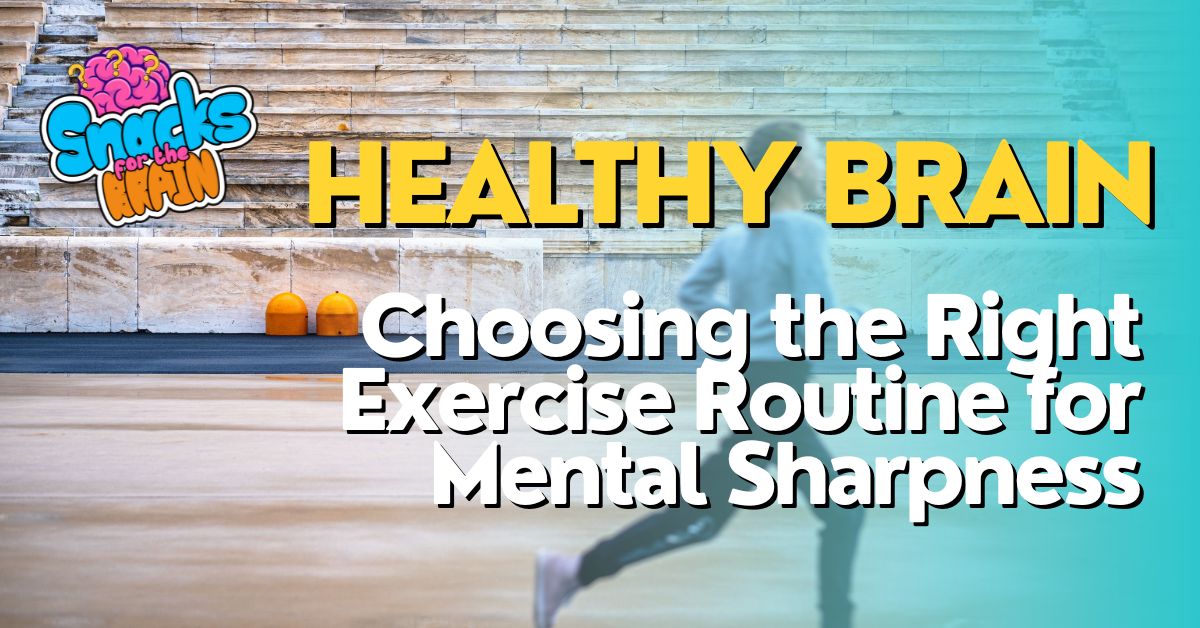Neurogenesis refers to the process of generating new neurons in the brain. It was once believed that the adult brain was incapable of producing new neurons, but research has shown that neurogenesis occurs throughout life, particularly in two regions of the brain: the hippocampus, which is involved in learning and memory, and the olfactory bulb, which is responsible for processing smells. Brain plasticity, on the other hand, refers to the brain’s ability to change and adapt in response to experiences and environmental stimuli. These processes are crucial for brain health and functioning as they play a role in learning, memory, mood regulation, and overall cognitive function.
Key Takeaways
- Neurogenesis and brain plasticity are important for brain health and functioning.
- Exercise promotes neurogenesis and can improve brain plasticity.
- Exercise increases the production of growth factors that support neurogenesis.
- Regular exercise can improve cognitive function and protect against age-related cognitive decline.
- Aerobic exercise and high-intensity interval training are the best types of exercise for promoting neurogenesis.
The Role of Exercise in Promoting Neurogenesis
Exercise has been found to have a profound impact on neurogenesis. When we engage in physical activity, it increases blood flow to the brain, delivering oxygen and nutrients that are essential for the growth and survival of new neurons. Additionally, exercise stimulates the release of various growth factors, such as brain-derived neurotrophic factor (BDNF), which promotes the survival and differentiation of new neurons. Studies have consistently shown that exercise can significantly increase neurogenesis in the hippocampus, leading to improvements in learning and memory.
One study conducted by researchers at the University of Illinois found that mice who had access to a running wheel showed a significant increase in neurogenesis compared to sedentary mice. The running mice also performed better on memory tasks compared to their sedentary counterparts. Another study published in the Journal of Neuroscience found that regular exercise increased neurogenesis in humans as well. Participants who engaged in aerobic exercise for six months showed an increase in hippocampal volume and improved memory performance compared to those who did not exercise.
How Exercise Affects Brain Plasticity
Exercise not only promotes neurogenesis but also enhances brain plasticity. When we engage in physical activity, it stimulates the release of various neurotransmitters, such as dopamine and serotonin, which are involved in mood regulation and cognitive function. These neurotransmitters play a crucial role in brain plasticity by strengthening existing connections between neurons and forming new ones. Exercise also increases the production of proteins that support the growth and maintenance of synapses, the connections between neurons.
A study published in the journal Nature Neuroscience found that exercise increased the number of dendritic spines, tiny protrusions on neurons that facilitate communication between brain cells. These dendritic spines are essential for synaptic plasticity, which is the ability of synapses to change and adapt in response to experiences. Another study conducted by researchers at the University of California, Irvine found that exercise increased the expression of genes involved in synaptic plasticity and learning.
The Science Behind Exercise and Neurogenesis
The biological mechanisms behind exercise-induced neurogenesis are complex and involve various factors. One key player is BDNF, a protein that promotes the survival and differentiation of new neurons. Exercise increases the production of BDNF in the brain, particularly in the hippocampus. BDNF acts on neural stem cells, which are responsible for generating new neurons, and promotes their proliferation and differentiation into mature neurons.
Another important factor is vascular endothelial growth factor (VEGF), a protein that stimulates the growth of blood vessels. Exercise increases VEGF production, leading to increased blood flow to the brain. This increased blood flow delivers oxygen and nutrients to neural stem cells, supporting their growth and survival. Additionally, exercise has been found to increase the production of insulin-like growth factor 1 (IGF-1), a hormone that promotes cell growth and survival.
The Benefits of Neurogenesis and Brain Plasticity
Neurogenesis and brain plasticity have numerous benefits for brain health and functioning. Firstly, they play a crucial role in learning and memory. The formation of new neurons and the strengthening of synaptic connections allow for the encoding and retrieval of information. Studies have shown that increased neurogenesis is associated with improved learning and memory performance.
Furthermore, neurogenesis and brain plasticity are involved in mood regulation. The production of new neurons and the formation of new synaptic connections can enhance the brain’s ability to regulate emotions and reduce symptoms of depression and anxiety. Research has shown that exercise-induced neurogenesis can have antidepressant effects and improve overall mental well-being.
Additionally, neurogenesis and brain plasticity are important for cognitive function. The ability of the brain to change and adapt allows for flexible thinking, problem-solving, and creativity. Studies have shown that exercise can improve cognitive function, including attention, executive function, and processing speed.
The Relationship Between Exercise and Cognitive Function

Exercise has been found to have a positive impact on cognitive function. When we engage in physical activity, it increases blood flow to the brain, delivering oxygen and nutrients that are essential for optimal cognitive function. Additionally, exercise stimulates the release of neurotransmitters, such as dopamine and serotonin, which play a crucial role in cognitive processes such as attention, memory, and decision-making.
Research has consistently shown that regular exercise is associated with improved cognitive function. A study published in the Journal of Aging and Physical Activity found that older adults who engaged in regular aerobic exercise had better cognitive performance compared to sedentary older adults. Another study conducted by researchers at the University of British Columbia found that aerobic exercise improved executive function in young adults.
The Impact of Exercise on Brain Health and Aging
Exercise has a significant impact on brain health and can protect against age-related cognitive decline. As we age, neurogenesis naturally declines, leading to a decrease in the production of new neurons. This decline is associated with age-related cognitive decline and an increased risk of neurodegenerative diseases such as Alzheimer’s disease.
However, research has shown that exercise can counteract these effects and promote brain health in older adults. A study published in the Journal of Aging and Physical Activity found that older adults who engaged in regular aerobic exercise had a lower risk of cognitive decline compared to sedentary older adults. Another study conducted by researchers at the University of Pittsburgh found that older adults who engaged in moderate-intensity exercise had larger hippocampal volumes compared to sedentary older adults.
The Best Types of Exercise for Promoting Neurogenesis
While any form of exercise can have benefits for neurogenesis, some types of exercise may be more effective than others. Aerobic exercise, such as running, swimming, or cycling, has been found to have a particularly strong impact on neurogenesis. This type of exercise increases blood flow to the brain and stimulates the release of growth factors that promote the growth and survival of new neurons.
Resistance training, such as weightlifting or bodyweight exercises, can also promote neurogenesis. While resistance training may not increase blood flow to the brain as much as aerobic exercise, it stimulates the release of growth factors and promotes the formation of new synaptic connections.
How Much Exercise is Needed to Promote Neurogenesis?
The recommended amount of exercise for promoting neurogenesis is not yet clear and may vary depending on individual factors such as age, fitness level, and overall health. However, research suggests that regular moderate-intensity exercise is beneficial for neurogenesis. The American Heart Association recommends at least 150 minutes of moderate-intensity aerobic exercise per week or 75 minutes of vigorous-intensity aerobic exercise per week.
It’s important to note that consistency is key when it comes to promoting neurogenesis through exercise. Engaging in regular physical activity is more effective than sporadic intense workouts. Aim for at least 30 minutes of moderate-intensity aerobic exercise most days of the week, along with resistance training two to three times per week.
The Importance of Exercise for Brain Health and Functioning
In conclusion, neurogenesis and brain plasticity are crucial processes for brain health and functioning. Exercise has been found to have a profound impact on these processes, promoting the growth of new neurons and enhancing synaptic plasticity. Regular exercise can improve cognitive function, protect against age-related cognitive decline, and enhance overall mental well-being.
To prioritize brain health and functioning, it is essential to incorporate regular exercise into our daily lives. Aim for a combination of aerobic exercise and resistance training, and strive for consistency in your exercise routine. By doing so, you can reap the benefits of neurogenesis and brain plasticity, leading to improved cognitive function, better mood regulation, and enhanced overall brain health. So lace up your sneakers, hit the gym, or go for a run – your brain will thank you.
If you’re interested in enhancing your cognitive abilities and expanding your knowledge, you might find the article «How to Take Effective Book Notes» from Intelligence Snacks & Hacks intriguing. This article provides valuable insights and techniques on how to extract key information from books, allowing you to retain and apply the knowledge gained. By implementing these note-taking strategies, you can further stimulate neurogenesis and brain plasticity, complementing the benefits of exercise in promoting cognitive growth. Check out the article here to discover effective methods for capturing the essence of what you read.
FAQs
What is neurogenesis?
Neurogenesis is the process of generating new neurons in the brain.
What is brain plasticity?
Brain plasticity refers to the brain’s ability to change and adapt in response to new experiences.
How does exercise promote neurogenesis?
Exercise promotes neurogenesis by increasing the production of growth factors that support the survival and growth of new neurons in the brain.
What types of exercise are best for promoting neurogenesis?
Aerobic exercise, such as running or cycling, has been shown to be particularly effective at promoting neurogenesis.
How does exercise promote brain plasticity?
Exercise promotes brain plasticity by increasing the production of growth factors that support the formation of new connections between neurons in the brain.
What are some other benefits of exercise for the brain?
Exercise has been shown to improve cognitive function, reduce the risk of cognitive decline and dementia, and improve mood and mental health.






